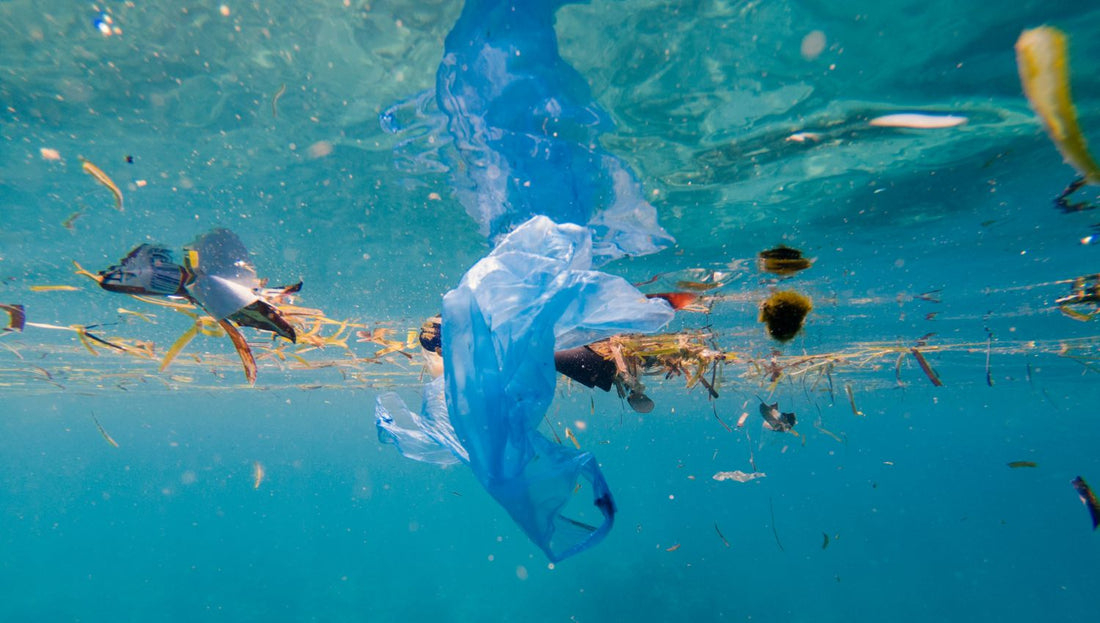
Marine pollution: a major environmental challenge for our planet
Marine pollution is an environmental problem that is growing in importance across the world. It affects not only marine biodiversity, but also the economy and human health . In this blog post, we will examine the main causes and consequences of marine pollution, as well as possible solutions to tackle them.
The causes of marine pollution
Plastic waste
Plastic is one of the main pollutants of the oceans . Every year, around 8 million tonnes of plastic end up in the oceans. Abandoned plastic bags, bottles, packaging and fishing nets pose a threat to marine life. Marine animals can ingest them, get entangled in them or even confuse them with their food.
Wastewater and chemicals
Domestic, industrial and agricultural wastewater contains chemical and biological pollutants that flow into the oceans. Fertilizers and pesticides used in agriculture cause nitrate and phosphate pollution, promoting the proliferation of toxic algae and the creation of dead zones devoid of oxygen.
Hydrocarbons
Oil spills resulting from oil accidents or illegal degassing cause significant hydrocarbon pollution. This pollution has dramatic consequences on marine fauna and flora , in addition to representing a risk for human health.
Air pollutants
Atmospheric emissions from human activities (industries, transport, combustion of fossil fuels) are deposited in the oceans and contribute to the acidification of the waters. This acidification has harmful effects on marine organisms, in particular on species with shells or calcareous skeletons such as molluscs and corals.
The consequences of marine pollution
Impacts on marine biodiversity
Marine pollution leads to the disappearance of many animal and plant species . Plastics ingested by marine animals can cause their death through obstruction of the digestive system or poisoning. Oil spills and chemical pollutants cause considerable damage to marine ecosystems , notably by destroying habitats and disrupting the food chain.
Effects on human health
Marine pollution impacts human health, primarily through the consumption of contaminated fish and seafood . Heavy metals, chemicals and microplastics in fish can cause health problems such as neurological disorders, fertility problems or cancers.
The economic consequences
Marine pollution also affects the global economy, including the tourism , fishing and aquaculture sectors. Beaches soiled by trash and oil spills deter tourists, while declining fish stocks and contaminated seafood lead to losses for fishermen and fish and shellfish farmers .
Solutions to combat marine pollution
Reducing plastic waste
Reducing plastic waste is essential to limit marine pollution. This involves raising consumer awareness, promoting the circular economy and putting in place regulations to ban single-use plastics. Recycling and the development of alternative biodegradable materials are also avenues to explore.
Wastewater treatment and regulation of chemicals
The treatment of domestic , industrial and agricultural wastewater must be improved to reduce their impact on the oceans. Stricter standards for industrial discharges and the use of chemicals in agriculture would help limit pollution of marine waters.
Prevention of oil spills and management of hydrocarbons
To prevent oil spills, it is essential to improve maritime transport safety and put in place stricter regulations regarding the degassing of ships. In addition, the search for alternative energy sources and the development of renewable energies can reduce dependence on hydrocarbons and limit the risks of marine pollution linked to their transport and use.
Monitoring and restoring marine ecosystems
Monitoring marine ecosystems and implementing programs to restore degraded habitats are essential to preserve biodiversity and enable the resilience of marine environments in the face of pollution. The creation of marine protected areas and the promotion of sustainable fishing practices are also necessary to limit the impacts of pollution on marine resources.
Conclusion on marine pollution: a major environmental challenge for our planet
Marine pollution is a major environmental issue that requires concerted action on a global scale. By tackling the main sources of pollution, developing sustainable alternatives and protecting marine ecosystems, it is possible to preserve the health of the oceans for future generations.
Governments , businesses and citizens all have a role to play in tackling marine pollution and preserving our precious ocean heritage.
































